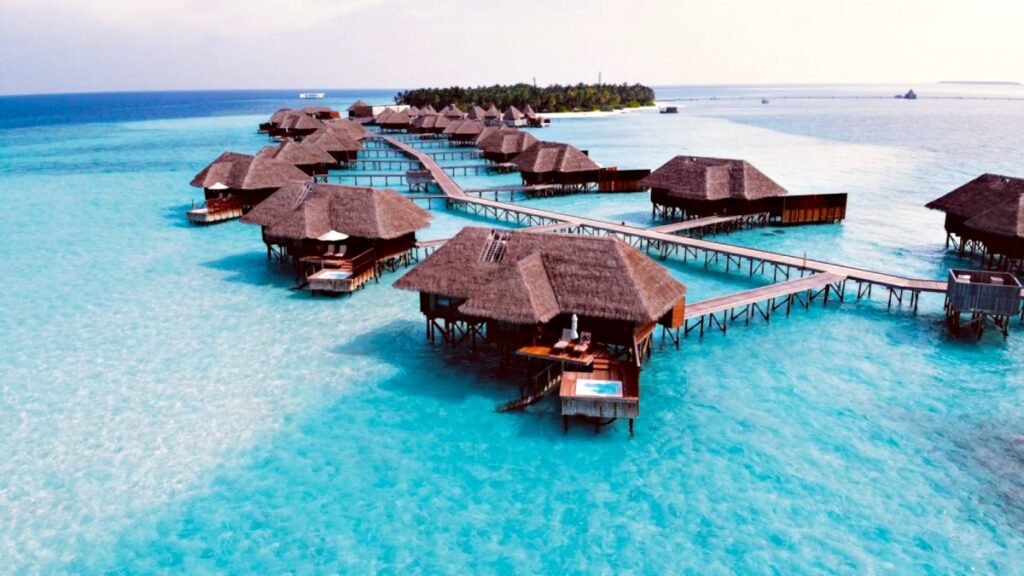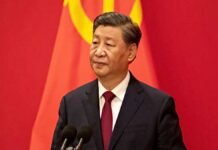
New Delhi: Maldives, a popular island destination in the Indian Ocean, has seen a shift in its tourism market in 2024, with China surpassing India as the top country of origin for its visitors. According to the official data released by the Ministry of Tourism of Maldives on Monday, February 5, 2024, China accounted for 11.2 percent of the total tourist arrivals to Maldives, with 23,972 visitors, until February 4. China was in the third position in 2023, behind India and Russia.
India, on the other hand, slipped to the fifth position in 2024, with 16,536 visitors, representing 7.7 percent of the total tourist arrivals to Maldives, until February 4. India was the top source of tourists to Maldives in 2023, with 2,09,198 visitors, followed by Russia with 2,09,146 visitors, and China with 1,87,118 visitors. Maldives received more than 1.7 million tourists in 2023, according to the Ministry of Tourism.
Diplomatic row
The decline in Indian tourists to the Maldives could be attributed to the diplomatic row that erupted between the two countries in January 2024, after three Maldivian ministers posted derogatory comments against India and its Prime Minister Narendra Modi on social media. The ministers were reacting to Modi’s visit to Lakshadweep, a group of islands in the Arabian Sea that are administered by India but claimed by Maldives.
The ministers accused Modi of violating Maldives’ sovereignty and territorial integrity, and called him a “thief” and a “murderer”. The comments sparked outrage among Indian social media users, who condemned the ministers for their disrespect and ignorance. Many Indian celebrities, including actors, singers, and sports stars, also joined the online campaign to boycott tourism in Maldives and urged their fans to do the same.
Following the backlash, the Maldivian government issued a statement, apologizing for the “unacceptable” and “irresponsible” remarks made by the ministers, and said that they did not reflect the official position of Maldives. The government also said that it valued its “close and friendly” relations with India, and hoped to resolve the issue through dialogue and mutual understanding.
However, the damage was already done, as many Indian tourists and travel companies reported canceling or postponing their planned trips to Maldives, citing the diplomatic dispute as the reason. Some Indian tourists also expressed their disappointment and anger at the Maldivian authorities for allowing such comments to be made by their ministers and said that they felt unwelcome and unsafe in Maldives.
Future prospects
The tourism industry is a vital sector of the Maldivian economy, accounting for about 28 percent of its gross domestic product (GDP) and 60 percent of its foreign exchange earnings, according to the World Bank. Maldives relies heavily on tourism to generate income, employment, and development for its population of about 540,000 people.
The impact of the diplomatic row with India on the Maldivian tourism industry is yet to be fully assessed, but some experts have warned that it could have long-term consequences for the island nation. They have suggested that Maldives should take steps to restore its image and reputation as a friendly and hospitable destination for Indian tourists, who are known for their high spending and loyalty.
Meanwhile, China has emerged as a strong contender for the Maldivian tourism market, as it has increased its presence and influence in the region. China has invested heavily in infrastructure and development projects in the Maldives, such as the China-Maldives Friendship Bridge, the Maldives International Airport expansion, and the Male-Hulhule light rail project. China has also provided loans, grants, and vaccines to Maldives, as part of its Belt and Road Initiative (BRI) and its COVID-19 assistance.
China has also promoted Maldives as a safe and attractive destination for its citizens, who are eager to travel abroad after the pandemic. China has established a travel bubble with Maldives, allowing its tourists to visit the island nation without quarantine, as long as they have a negative PCR test and a valid visa. China has also waived the visa fee for Maldivian visitors and offered them preferential treatment at its airports and hotels.

The rise of China as the top source of tourists to Maldives could have implications for the political and strategic balance in the Indian Ocean, where India and China are competing for influence and resources. India considers Maldives as part of its sphere of interest and has provided security and defense assistance to the island nation, as well as humanitarian and economic aid. India has also signed several agreements with Maldives, such as the Comprehensive Economic Cooperation and Partnership Agreement (CECPA), the Air Travel Bubble Arrangement (ATBA), and the Dosti-Ekuverikan (Friendship) Agreement.
The future of the tourism industry in Maldives, and its relations with India and China, will depend on how the island nation manages its diplomatic challenges and opportunities, and how it balances its interests and values. Maldives will have to navigate the complex and dynamic regional and global environment while maintaining its sovereignty and identity as a small island state.



















































